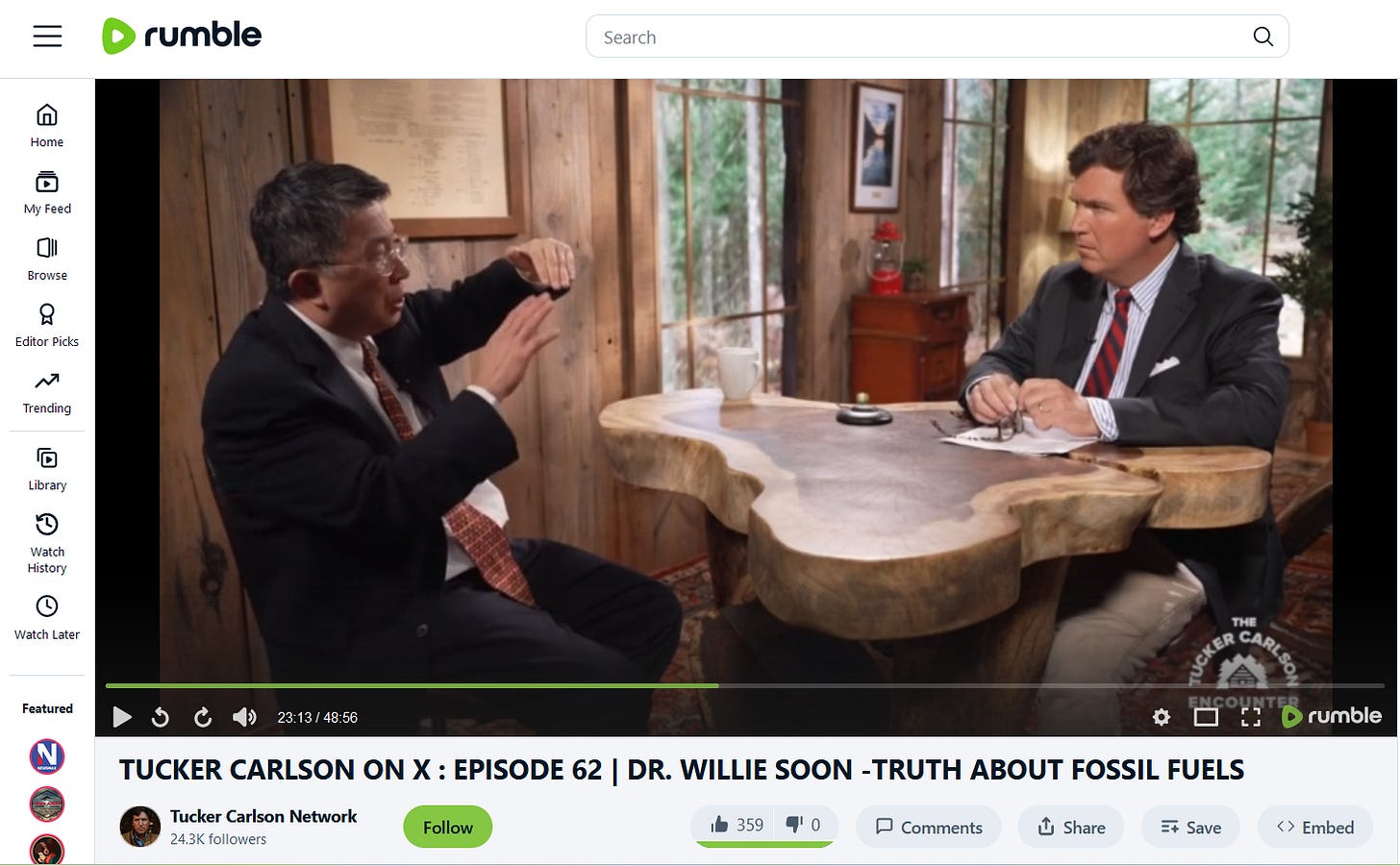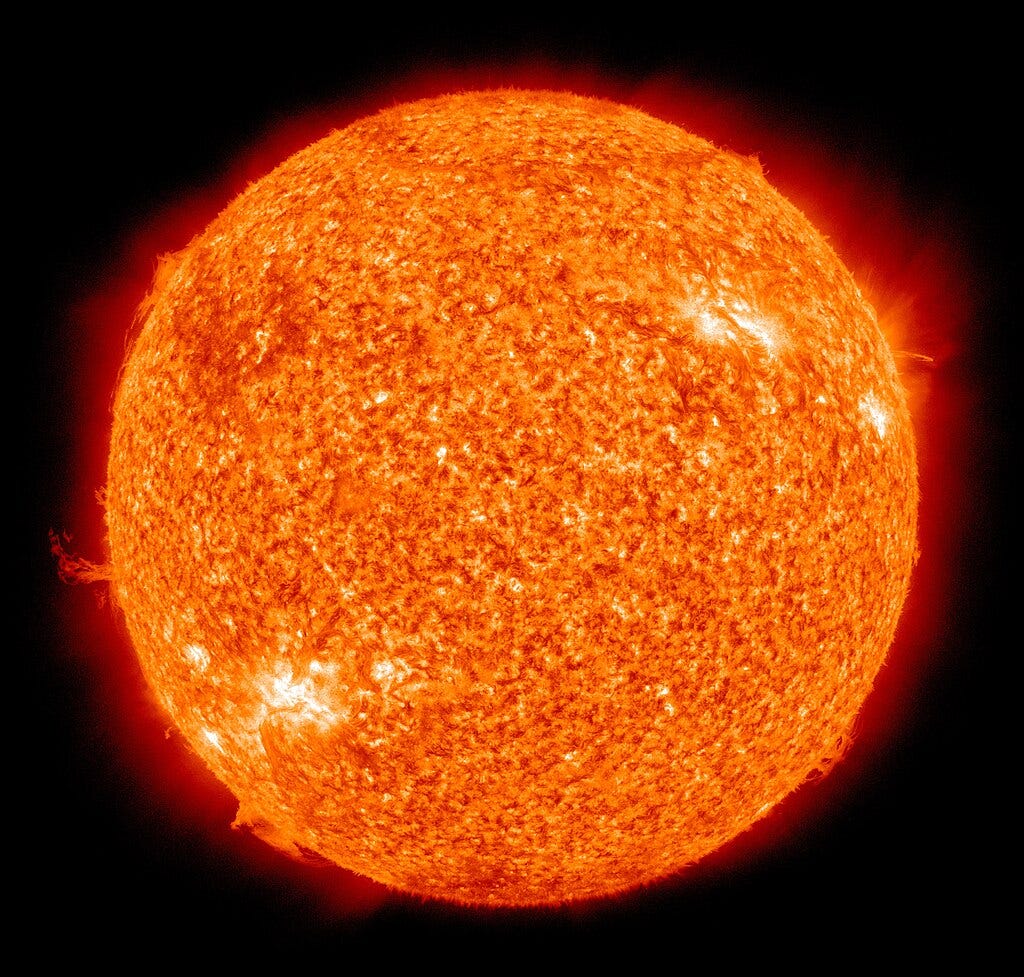Astrophysicist Willie Soon on the Climate Crisis: ‘CO2 Ain't Gonna Cause Nothing’
Renowned astrophysicist Willie Soon says that the general view in both science and the media that dangerous anthropogenic global warming is occurring, is not true.
The general view in both science and the media is that dangerous anthropogenic global warming is occurring, caused by CO2 from burning fossil fuels. Renowned astrophysicist Willie Soon says this is not true, and questions what we think we know about fossil fuels in the first place.
Willie Soon studied aerospace engineering at the University of Southern California, where he also obtained a PhD in the field. For 31 years he worked at the prestigious Solar, Stellar and Planetary Sciences Division of the Harvard-Smithsonian Center for Astrophysics in Massachusetts, USA. In 2018, he co-founded CERES (Center for Environmental Research and Earth Sciences), an independent research centre, with other scientists, which is where most of his activity is currently carried out. In a recent interview, Soon raised valid objections to the anthropogenic global warming hypothesis and pointed to the many controversies surrounding the issue.
One of the controversies that Soon addresses concerns fossil fuels, i.e. oil, gas, coal, shale, etc. Fossil fuels are generally thought to have developed in the earth's crust from organic matter, animal and plant remains, as a result of intense pressure and high temperatures, and since this process takes millions of years, they cannot be considered renewable sources. In other words, they are expected to be exhausted within a few decades, according to pessimistic forecasts.
Soon points out, however, that in fact there is a lot of scientific evidence to suggest that fossil fuels have nothing to do with fossils. Experiments have been carried out in which methane is artificially pressurised in the same way as methane deep underground is and then transformed into a hydrocarbon (or fossil fuel). This means that not all of our fossil fuels may come from degenerated wildlife and that more can be produced. Soon points out that this is further confirmed by the fact that, for example, various hydrocarbon compounds have been found on Titan, Saturn's largest moon. Titan's temperature is too cold for life, -180°C, so they could not have been formed by the degeneration of living matter. It is likely that the environmental conditions there were favourable for the formation of carbon and hydrogen compounds. This, in turn, proves that fossil fuels do not necessarily need fossils. From there, however, the question arises as to whether what we think about fossil fuels – including the fact that they will all run out soon – is true.
CO2 is not a climate changer
When talking about climate change, man-made greenhouse gases, especially carbon dioxide, or CO2, are usually cited as the main culprit. But Soon says there is no evident link between carbon dioxide and climate change. According to him, CO2 causes nothing. It doesn't change the speed of hurricanes or the frequency of storms. It doesn't affect polar bear populations or fishing.
The main problem, according to Soon, is the UN's Intergovernmental Panel on Climate Change (IPCC). They have used science as an authoritative tool, but have actually misled people, he says. He says that governments and politicians, such as the current US President Joe Biden's climate envoy John Kerry, or former US Vice President Al Gore, whose competence in physics Soon deeply doubts, are behind the propaganda of the climate crisis. According to Soon, the sad fact that the IPCC does not recognise is that carbon dioxide is the basis of life. If there is more CO2, there will be more life in the plant kingdom, the ocean, and the ecosystem in general. That is why, he says, carbon dioxide is called "the gas of life". Now, according to Soon, the IPCC wants to make carbon dioxide our enemy, one that is causing global warming and many other evils.
Of course, Soon does not dismiss the IPCC's claims as false without investigating them. He has looked into them, verified them, and presented a series of reasoned rebuttals in his research (see here).
So – if carbon dioxide is ruled out as a climate-changing factor, according to Soon, what does climate change depend on? Soon argues with 90% certainty that it is the Sun that is causing the changes.
"This is the problem. They (the IPCC - MK) are forced to confess it’s the Sun that does actually a lot of this," he says. According to Soon, temperature change can be attributed to two factors. The first is the brightness of the Sun's rays and the second is the change in the orbits of planets such as Mars, Saturn, and Venus. "These two factors can explain just about… All the data that I have," he claims. "The most important thing they should talk about you know what... Is the season. No two winters are the same. No two summers are the same. And they never explain that. It's actually the orbits with the Sun changing ever so slightly," he says.
Temperatures have fluctuated over the centuries
It is possible to predict the orbits of planets, but changes concerning the Sun are too difficult to predict. "The Sun is a magnetized ball. It's a hot gas… Its magnetic field is so strong, ten thousand times stronger than Earth's." What goes on inside the Sun creates all sorts of gaseous reactions that are very difficult to understand or even put into a mathematical model, according to Soon. Studying the Earth is much easier, he says. We've had data on the Sun since 1609 when Galileo Galilei started studying it. Since then, the Sun has been studied and changes have been observed. For example, the Sun used to be dimmer and did not shine as brightly as it does now. But when we talk about climate change, we are not talking about the Sun, and only CO2 has to be seen as the cause of climate change. In the world of science, this is a very bad thing, says Soon. "I’d rather have a question that cannot be answered than an answer that cannot be questioned. Because these people (the IPCC) are just offering you the answer and then you should just shut up."
There is also a problem of its own with temperature measurements, according to Soon. As we know, last year, for example, the planet was declared the hottest on record, and UN Secretary-General Antonio Guterres informed humanity that we had entered an era of global boiling. However, according to Soon, current temperature measurements cannot be taken into account because they are taken in an urban environment. In urban areas, however, temperatures are affected by asphalt and concrete because the ground does not breathe in the same way as in rural areas. Soon and his colleagues proposed an alternative by measuring temperatures outside the urban environment and obtained significantly different results. They found that urban areas have warmed by 0.89°C per century, while rural areas have warmed by 0.55°C per century. This means that taking these studies into account, the scientific community can't say with absolute certainty whether global warming is due to human activity, non-human activity, or a combination of the two. Soon also sees no point in calculating global temperatures. "What is the temperature you want to set for a global temperature? Al Gore has not been able to answer that. John Kerry has not been able to answer that. Because we know the temperature from the coldest in Siberia to the desert in Sahara. These are huge, a hundred degrees or more differences. Who are you to tell me which temperature is the correct temperature?"

Soon also points out that, although it's discouraged to say this when talking about climate change, temperatures have been in a constant state of flux throughout history. "There’s a period called “Little Ice Age” from about 1300 to 1900, you know, very cold. And then there’s a warm period from 880 to about 1200. You know, it was warm. I mean you could grow wine in England, right, but now you cannot grow wine," says Soon.
Climate science is being done according to sponsors' expectations
Asked why then the scientists do not talk about the fact that the warming trend started long before humans started emitting significant CO2, Soon says it is a question of the expectations of the sponsors of climate science.
"This is the problem, the whole problem in science this day is related to funding… This is part of the reason why I want to be totally independent and get out of this whole system… Even if you don’t get money directly, it will influence the graduate students, and on and on… And many people are afraid to speak up… But all it takes is one to be correct," he says. Soon cites the stream of criticism Albert Einstein experienced because of the theory of relativity as an example. He was criticised by many and it was written at length that he was wrong, but nowhere was it written what exactly was wrong with the theory. There is no need for a mass of people to say what is right. One person is enough to speak the truth. Soon says he is motivated by his love of science and is sad to see the scientific world being warped by all sorts of outside forces. "About 80-90% of the papers published in so-called “climate science” today should not be published," he opines.
Soon's own research has also previously been reported to have been funded by an oil company and an organisation representing oil interests. There has also been a coal electricity producer and the conservative Charles Koch Foundation on that list. Soon has addressed the issue, saying the donors have had no influence on his scientific conclusions.





The last paragraph is all you need to know. There is a massive conflict of interest if oil and coal companies are funding various shadowy institutions to carry out climate change. Industrial companies have been muddying the waters by funding 'research' for years, pioneered by tobacco and asbestos companies. The pernicious effects of drug companies on the medical knowledge data base is well known and this here is no different.
“ . . . it is these ocean state changes that are
1:02:28 correlated with the great disasters of the past impact can cause extinction but
1:02:35 it did so in our past only wants[once] that we can tell whereas this has happened over
1:02:40 and over and over again we have fifteen evidences times of mass extinction in the past 500 million years
1:02:48 so the implications for the implications the implications of the carbon dioxide is really dangerous if you heat your
1:02:55 planet sufficiently to cause your Arctic to melt if you cause the temperature
1:03:01 gradient between your tropics and your Arctic to be reduced you risk going back
1:03:07 to a state that produces these hydrogen sulfide pulses . . . “
https://www.youtube.com/watch?v=Ako03Bjxv70 },